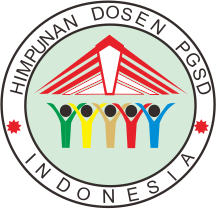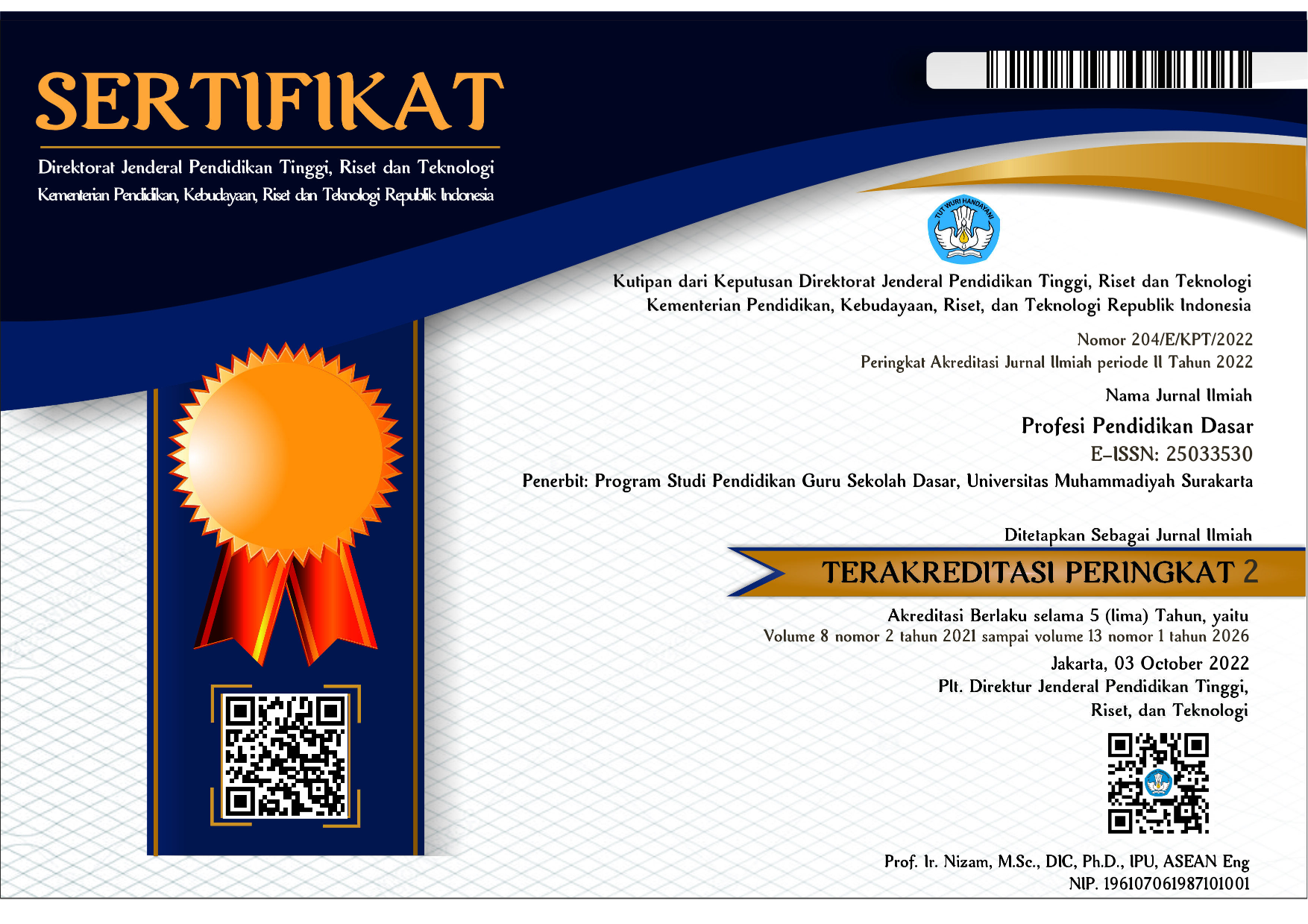FAKTOR-FAKTOR PENYEBAB MISKONSEPSI SISWA SD PADA MATERI LIFE PROCESSES AND LIVING THINGS
Yogi Kuncoro Adi(1*), Ndaru Mukti Oktaviani(2)(1) Universitas Kuningan
(2) Universitas Kuningan
(*) Corresponding Author
Abstract
Abstract
The misconception is a common problem in the world of science learning. This study aims to reveal the types and causes of primary science misconception in the life processes and living things. Therefore, qualitative case studies were used in this study and the primary school students were subject to this study. The results showed that students who had misconceptions in the concept of living, classification, breathing, and microbe and disease. In addition, the causes of student misconceptions were the students' pre-concepts, humanist thinking, false reasoning, and associative thinking. Based on the findings of this study, it is recommended that learning must promote cognitive conflict to correct the student’s misconceptions.
Keywords: misconception, primary science
Keywords
Full Text:
PDFReferences
DAFTAR PUSTAKA
Başer, M., & Geban, Ö. (2007). Effect of instruction based on conceptual change activities on students’ understanding of static electricity concepts. Research in Science & Technological Education, 25(2), 243–267. https://doi.org/10.1080/02635140701250857
Burgoon, J. N., Heddle, M. L., & Duran, E. (2011). Re-Examining the Similarities Between Teacher and Student Conceptions About Physical Science. Journal of Science Teacher Education, 22(2), 101–114. https://doi.org/10.1007/s10972-010-9196-x
Celikten, O., Ipekcioglu, S., Ertepinar, H., & Geban, O. (2012). The Effect of the Conceptual Change Oriented Instruction through Cooperative Learning on 4th Grade Students’ Understanding of Earth and Sky Concepts. Science Education International, 23(1), 84–96.
Duit, R. (1996). The constructivist view in science education – what it has to offer and what should not be expected from it. In International Conference “Science and Mathematics for hte 21st century: Towards Innovatory Approaches” (Vol. 1, pp. 40–75).
Mufit, F., Festiyed, F., Fauzan, A., & Lufri, L. (2018). Impact of Learning Model Based on Cognitive Conflict toward Student’s Conceptual Understanding. IOP Conference Series: Materials Science and Engineering, 335(1). https://doi.org/10.1088/1757-899X/335/1/012072
Pine, K., Messer, D., & John, K. St. (2001). Children’s Misconceptions in Primary Science : A survey of teachers’ views. Research in Science & Technological Education, 19(1), 79–96. https://doi.org/10.1080/0263514012004624
Sopandi, W., Latip, A., & Sujana, A. (2017). Prospective Primary School Teachers’ Understanding on States Of Matter and Their Changes. Journal of Physics: Conference Series, 812 (2017). https://doi.org/10.1088/1742-6596/755/1/011001
Sugiyono. (2011). Metode penelitian kuantitatif kualitatif dan r&d. Bandung: Afabeta.
Suparno, P. (2013). Miskonsepsi & perubahan konsep dalam pendidikan fisika. Jakarta: PT Grasindo.
Tayubi, Y. R. (2005). Identifikasi Miskonsepsi Pada Konsep-Konsep Fisika Menggunakan Certainty of Response Index (CRI). Mimbar Pendidikan, 24(3), 4–9.
Article Metrics
Abstract view(s): 3964 time(s)PDF: 2816 time(s)
Refbacks
- There are currently no refbacks.


















